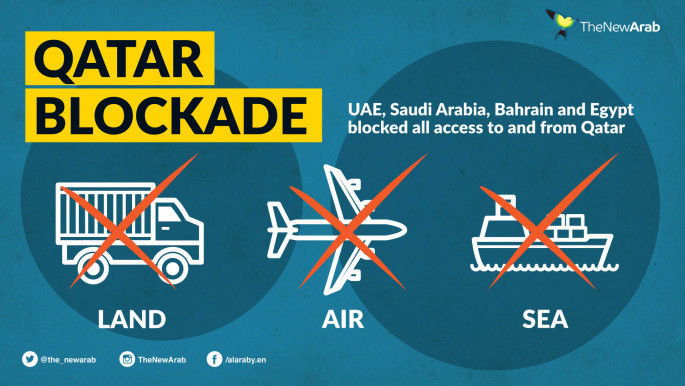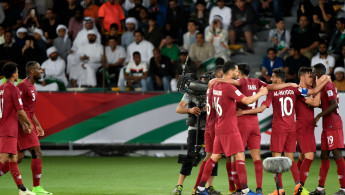Saudi Arabia, UAE, Bahrain confirm Gulf Cup attendance in Doha despite two-year blockade on Qatar
The trio confirmed their attendance in official statements published by their football associations just over a week ahead of the tournament.
The announcement will see the three Gulf states join Iraq, Kuwait, Oman, Yemen, and hosts Qatar at the November 24 to December 6 tournament in Doha. Authorities in Qatar are expected to hold a meeting to organise the new timetable for the games on Wednesday, BeIn Sports confirmed.
Qatar's successful bid to host the 2022 World Cup has been a cause of bitter envy among Gulf rivals, with many suspecting the Saudi-blockade was in part designed to disrupt preparations for the prestigious global tournament.
Dubbed the “dark horses of the Asian Cup 2019”, Qatar delivered a humiliating blow to the UAE after winning the tournament in the UAE following a remarkable record-breaking run that saw the team concede just one goal.
Though the Annabis took the cup in the UAE, Emirati dignitaries were notable by their absence from the podium.
The UAE had taken a number of attempts to end Qatar's run in the tournament - from block-buying 18,000 tickets to the semi-final, ensuring few if any Qatar fans could get a seat, to complaining bitterly about the eligibility of Qatari players.
Not a single senior UAE official was present to hand medals to the victorious Qatar football team in the closing ceremony of the Asian Cup 2019 and elaborate plans to feature some of the region's biggest stars including Hussein al-Jesmi were also scrapped at the last minute, according to reports.
Read more: GCC – A glimmer of hope or condemned to history?
GCC members Saudi Arabia, the United Arab Emirates and Bahrain, in addition to Egypt, imposed a sea, land and air blockade of Qatar in June 2017 accusing it of ties to radical groups. Doha has repeatedly denied the allegations, which were based on false news published on the website of the Qatari News Agency (QNA) after it was hacked.
In 2017, shortly after the blockade was imposed, Saudi Arabia gave Kuwait a list of 13 demands to pass on to Qatar. Qatar rejected these, saying that they violated its sovereignty and aimed to impose hegemony on it. The blockade has been largely ineffective.
Last month, the emir of Kuwait has told the Kuwaiti parliament that the 30-month dispute between Qatar and Gulf countries is no longer acceptable and must be resolved.
Addressing the opening session of the Kuwaiti parliament's new term, Sheikh Sabah said the Saudi-led boycott has greatly weakened the unity of the six-nation Gulf Cooperation Council (GCC) in which Qatar and the countries which are blockading it are members.
 |
"It is no longer acceptable or bearable for the dispute that erupted between our GCC brethren to continue," Sheikh Sabah, 90, told parliament in his first public appearance since travelling abroad for medical treatment in early September.
Sheikh Sabah, who has been acting as a mediator to resolve the dispute, said the "row has weakened our capabilities and threatened our achievements", calling for a negotiated solution.
The emir also called for national unity in the face of regional developments and protests in several Arab countries.
He also hit out at the misuse of social media, saying it has created divisions in society.
In Kuwait, dozens of online activists have been sentenced to various jail terms, mainly for criticising the emir.
In New York last month, Qatar’s ambassador to the UN, Sheikha Alya Ahmed Al-Thani said that Qatar was willing to engage in “unconditional dialogue” with the countries blockading it in order to “resolve the fabricated crisis”.
She said that these countries had failed to provide any evidence of their claims that Qatar was “sponsoring terrorism”.
Follow us on Twitter and Instagram to stay connected!





 Follow the Middle East's top stories in English at The New Arab on Google News
Follow the Middle East's top stories in English at The New Arab on Google News


